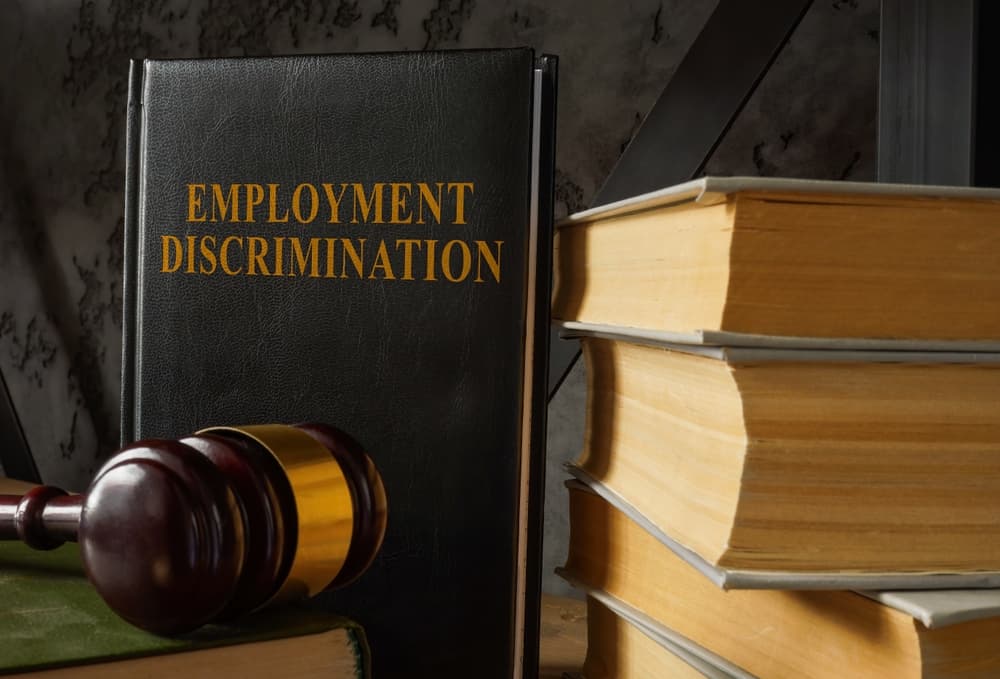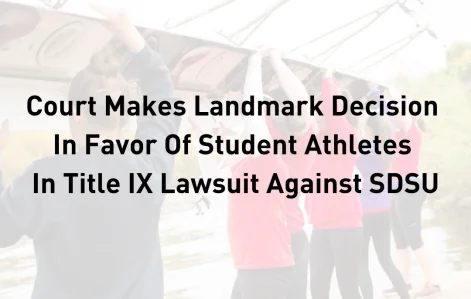Discrimination continues to persist in employment across the United States. The law prohibits discrimination by employers or prospective employers based on protected factors, which include age, disability, sex, religion, and more.
While the law prohibits businesses from discriminating based on race, employees continue to face unlawful racial discrimination throughout the United States.
If you believe you experienced racial discrimination in violation of federal or state employment laws, make your first call to a race discrimination attorney near you. They can assess your rights and options for seeking legal relief under the law.
Schedule a Free Case Evaluation Today!
Federal Law on Race Discrimination

To fully comprehend why businesses cannot discriminate against employees or applicants based on race, you need a lawyer who understands the federal laws safeguarding against race discrimination. The United States has several laws that specifically address and prohibit discrimination in employment based on race.
Title VII of the Civil Rights Act of 1964 is one of the most significant pieces of legislation in this area. It applies to employers with 15 or more employees and makes it illegal for employers to discriminate against employees or job applicants based on race, color, national origin, religion, or sex.
This law prohibits racial discrimination in all aspects of employment, including:
- Hiring
- Firing
- Promotions
- Job assignments
- Compensation
Title VII also prohibits racial harassment in the workplace as a form of discrimination. Employers must create a work environment free from racial hostility, including offensive jokes, slurs, or derogatory comments.
Employers may not discriminate based on an individual’s perceived race. Even if a business does not know an applicant or employee’s true race, they might discriminate based on an assumption. Employees can still hold the business liable in this situation.
If an employee experiences racial discrimination or harassment, they need to know their rights and seek legal assistance from an employment discrimination lawyer.
Each State is Different Regarding Race Discrimination in Employment
Each state has its own set of laws or standards regarding race discrimination. This means the legal landscape can vary significantly depending on where you live or work.
In some states, specific laws prohibit discrimination based on race in all aspects of employment, including hiring, promotions, and terminations. These laws ensure that employers judge individuals solely on their skills and qualifications rather than their race.
However, other states may offer fewer protections against racial discrimination in employment. This means employers may have more leeway in their hiring practices or fewer restrictions regarding race considerations.
Some states simply follow the federal guidelines, while others enact stricter provisions for employers that favor employees more than federal law.
Remember, to protect your rights and ensure fair treatment in the workplace, a knowledgeable employment attorney can provide the guidance to identify race discrimination and take appropriate action if you have been a victim.
State Law Example: California Race Discrimination Law
While federal law provides a baseline of protection against race discrimination, and many states simply follow federal laws, a handful of states have additional laws that provide even stronger protections. For example, California has laws that go above and beyond federal protections. In fact, California employment laws, including anti-discrimination laws, are some of the most employee-friendly in the United States.
Under the California Fair Employment and Housing Act (FEHA), employers with five or more employees may not discriminate against employees or job applicants based on race, color, national origin, ancestry, or other protected characteristics. This is stricter than federal laws for employers with 15 or more employees.
California law also expands the definition of race to include traits historically associated with race, such as hair texture and protective hairstyles. This means that discrimination based on certain hairstyles or hair textures associated with particular racial groups is also illegal in California.
California law recognizes that hairstyles are an integral part of a person’s racial or ethnic identity and should be protected from discriminatory practices. This means employers cannot enforce grooming policies that disproportionately affect individuals of specific races or ethnicities.
Hairstyles such as braids, cornrows, locks, and afros are examples of cultural and ethnic expressions that employers cannot restrict or use as a basis for hiring, promotion, or termination decisions.
If an individual feels they have been a victim of race discrimination based on their hairstyle or any other features, they should immediately consult an experienced employment attorney.
An attorney can assess the validity of a potential claim, gather evidence, and guide the employee through the legal process. Additionally, an attorney can provide support and representation to ensure their client’s rights are protected and justice is sought.
It is important to be aware of your rights and not tolerate any form of racial discrimination in the workplace. Discrimination based on race or race-related hairstyles violates California law, and legal action can hold employers accountable.
By seeking legal assistance, you can not only protect your employee rights but also contribute to the larger movement against racial discrimination and promote a more inclusive and equal society.
Examples of Racial Discrimination

Race discrimination can happen in several different ways, which is why it can be difficult to identify. If you suspect that you experienced this type of discrimination in any form, immediately seek a free consultation with an employment discrimination lawyer.
Refusal to Hire Based on Race
One of the most explicit forms of race discrimination is when an employer refuses to hire an individual based solely on their race. This can occur during the hiring process when an employer considers race as a determining factor in selecting candidates.
Employers are legally required to make hiring decisions based on qualifications, skills, and experience rather than race or other protected characteristics. If you believe an employer discriminates against you, consult an employment discrimination attorney who can oversee the legal process.
Harassment
Racial harassment in the workplace is a form of racial discrimination that can create a hostile work environment.
This can include:
- Offensive jokes or comments
- Racial slurs
- Derogatory remarks
- Any other unwelcome conduct based on an individual’s race
Employers have a duty to take immediate and appropriate action when they become aware of racial harassment in the workplace. They should conduct thorough investigations, take steps to remedy the situation, and support the victim. If they fail to address a hostile work environment, employees can hold employers liable for race discrimination.
Favoring Other Employees for Promotions or Raises Based on Race
Another form of race discrimination is when employers favor certain employees for promotions or raises based solely on their race rather than objective performance criteria. This can hinder the career progression of qualified individuals for discriminatory reasons.
If you suspect that employers denied you promotions or raises based on your race, or you experienced demotions or pay decreases, always gather evidence and consult an employment discrimination attorney who can assess the situation and determine the best course of action.
Wrongful Termination Due to Race Discrimination
Terminating an employee based on their race clearly violates federal and state anti-discrimination laws. Wrongful termination based on race can occur when an employer fires, lays off, or forces an employee to resign solely because of their race.
Proving wrongful termination due to race discrimination can be challenging, as employers may offer pretextual reasons for the termination. However, with the assistance of an experienced employment discrimination attorney, you can gather evidence to support your claim and pursue legal action against the employer.
Unlawful Retaliation for Reporting Race Discrimination or Harassment at Work
If employers discriminate or harass you at work due to your race, the law gives you the right to report such incidents without fear of retaliation. The law protects employees who speak up against racial discrimination or harassment from facing any adverse actions or consequences resulting from their complaints.
This protection ensures employees feel safe and supported when addressing issues of racial discrimination in the workplace.
Federal and state law prohibit employers from retaliating against employees who report race discrimination or harassment.
Retaliation can take many forms, including:
- Termination
- Demotion
- Pay reduction
- Unfavorable work assignments
- Hostile behavior from colleagues or supervisors
These illegal actions can provide grounds for a separate retaliation lawsuit against the employer.
Retaliation does not just refer to actions directly by an employer. It can also include actions by fellow employees motivated by the employer’s knowledge of the complaint.
For example, if a coworker harasses or ostracizes you because they know you reported race discrimination, the employer may still be liable for their actions.
To protect your rights and ensure you do not suffer any negative consequences for reporting race discrimination or harassment, consult an experienced employment attorney. They can evaluate the best action to take, handle the process, and represent you in any legal proceedings that may arise.
An attorney will advocate for you and seek the appropriate remedies and damages for any harm you have suffered due to the retaliation.
Remember, you should never have to tolerate race discrimination or harassment in the workplace. By speaking up and reporting these incidents, you are not only safeguarding your rights but also contributing to creating a more inclusive and equitable work environment for yourself and your colleagues.
If you believe you have experienced racial discrimination or harassment at work, don’t hesitate to seek legal advice and protect your rights.
Proving Race Discrimination Can be Difficult

Proving race discrimination in the workplace can be challenging, as employers often have multiple defenses and may offer pretextual reasons to justify their actions.
However, with strategic planning, strong evidence, and the right employment discrimination attorney, you can prove race discrimination and obtain justice.
Pretextual Reasons by Employers
Employers may attempt to disguise their discriminatory actions by offering pretextual reasons for their decisions. They may claim performance issues, downsizing, or other legitimate business reasons for termination, demotion, or other actions.
Your lawyer can recognize these pretextual reasons and gather evidence to demonstrate that they are invalid and that discrimination was the underlying motive.
Presenting Evidence of Discrimination
To prove race discrimination, you must gather and present evidence that demonstrates a pattern or practice of discrimination. This can include documenting discriminatory comments or behaviors, collecting relevant documents and records, and obtaining witness testimonies.
An employment discrimination attorney can handle collecting evidence and ensure you have a strong case to present.
Negotiating With an Employer
Before pursuing legal action, you may need a lawyer to negotiate with your employer.
An employment discrimination attorney can strategize and negotiate for a fair resolution, such as compensation, reinstatement, or changes in workplace policies. An experienced attorney can significantly increase your chances of reaching a favorable outcome.
Pursuing Legal Action for Discrimination
If negotiations fail to resolve the issue, you may need to pursue legal action against your employer.
An employment discrimination attorney can file a complaint with the appropriate government agency, such as the Equal Employment Opportunity Commission (EEOC) or state agency, and represent your interests throughout the legal process.
Always consult an attorney as soon as possible to ensure you meet any applicable deadlines for filing a discrimination claim.
You Need a Race Discrimination Lawyer on Your Side
Race discrimination in the employment world is a significant issue that cannot be ignored. Federal and state laws protect against racial discrimination in the workplace, and individuals have the right to pursue legal action when they experience a violation of their rights.
If you believe an employer discriminated against you based on your race, don’t hesitate to contact an San Diego employment law lawyers . They can explain your rights, gather evidence, and support you through the legal process. Remember, you are not alone in this fight for equality and justice at work.





